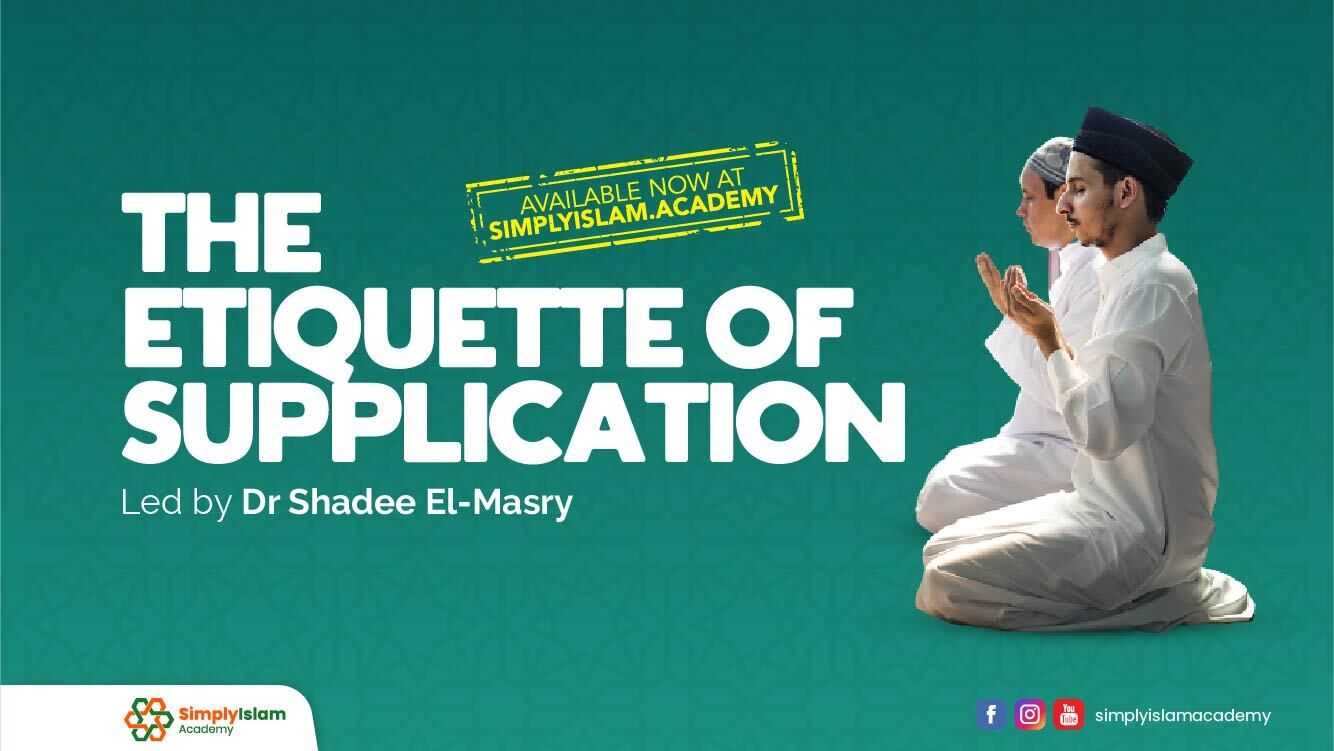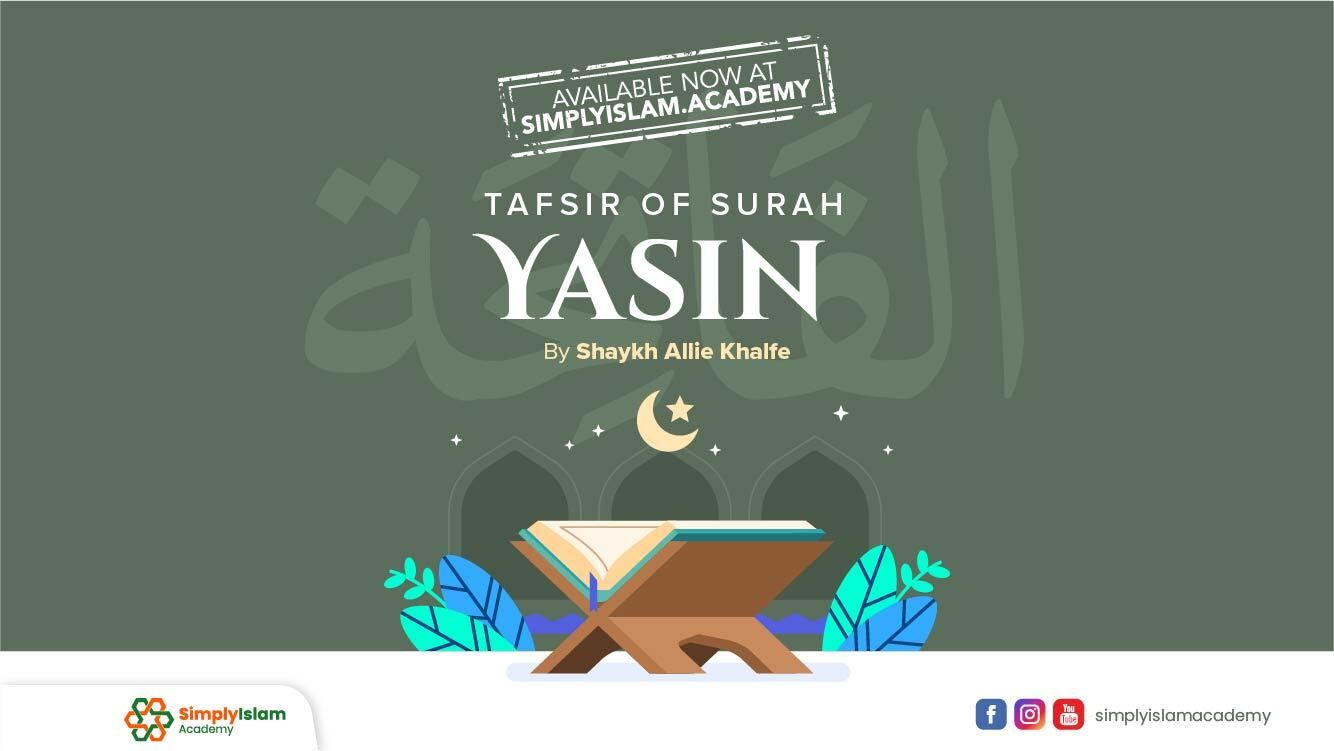-
Spirituality
How to Make Dua |Tips, Etiquettes, and Essential Supplications
-
Naushin Abid
-
11 Nov 2021
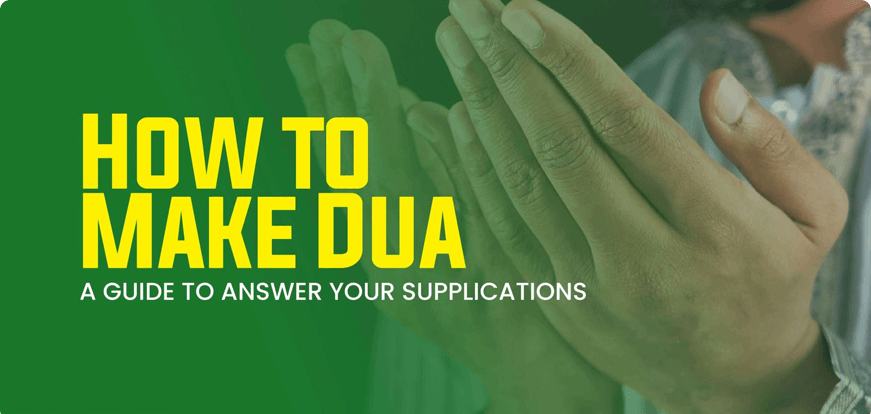
Imagine yourself that you are stranded all alone on a far away uninhabited island with no means or support for rescue, or you are in a ship that has been abandoned and in the middle of the ocean there is no help available for miles. In that case what will you do! Obviously with no resort available , there is just one avenue available to turn to and that is to make dua to Allah the Almighty an earnest plea for help, which is what this article is all about how to make dua !
Dua : A Mu’min’s Hotline to Heaven!

Sometimes there are situations that occur in the life of a person when all worldly means to get help and support fails and there is no immediate respite available from the trial or difficulty one is trapped in . There is hopelessness surrounding his every means of survival. Then there is just one doorway left when everything else fails and that is to make a dua for immediate help from Allah, or a heartfelt plea to Allah the Almighty who is the rescuer and can grant relief from any tough situation no matter how impossible it seems at that time.
However, it is quite unfortunate that we see dua or making an immediate call for help to Allah the Almighty as a last resort and not the first one.
If we compare this to the fact that what is evident before us from the sunnah of our beloved messenger of Allah the Almighty صلى الله عليه وسلم, that it was his first resort in the times of trial and tribulation. At so many instances we see from the seerah, that at the time when he visited the city of Taif and he was pelted with stones and treated in the most undesirable manner, during the battle of Badar and Uhud, and so many other scenarios spread out during the Prophet ‘s life span صلى الله عليه وسلم, always rushed to make dua as heartfelt plea to his beloved Allah the Exalted.
We have so many duas which are narrated from sunnah apart from the duas mentioned in Quran, that at every instance or act that a muslim makes there is a sunnah dua available; whether he is waking up or going to bathroom, or leaving/entering the house, eating, drinking, any act that he is involved in we find an appropriate dua .
Now why is that?
The reason is that dua is in essence a connection; it is like a constant means of two way communication between the momin and his Rabb.
We can say it is a hotline to Heaven!
What is dua according to Islam?
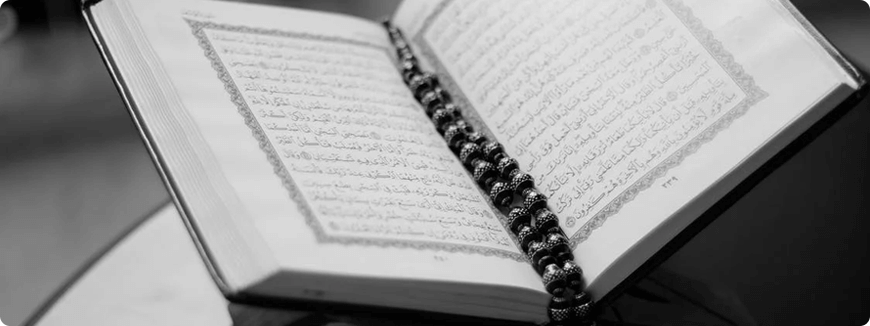
In literal terminology the term “dua “ comes from the root letters دع و, which means a call for help. From the religious perspective the term “dua” means turning to Allah the Almighty in supplication and calling on him invoking His mercy to fulfill our every need be it the basic desires and necessities like health, safety, money, food and sustenance to something as lofty as a high stature in Hereafter. There is no limit to the amount viz a viz the quantity of dua that one can make. In other words “ The Sky's the Limit ''. Even Prophet Muhammmad صلى الله عليه وسلم also emphasized on the fact that : '' A momin is never stingy with his duas' '. This shows how much and how often one should engage in this rewarding act of worship.
The Etiquette of Supplication

Get your du’as answered by following the set of proper etiquette. Make du’a the right way and see the difference
The Importance and value of dua in islam:
According to an authentic narration of Prophet Muhammad : صلى الله عليه وسلم
“ Dua is the most powerful weapon of a momin worshipper.”
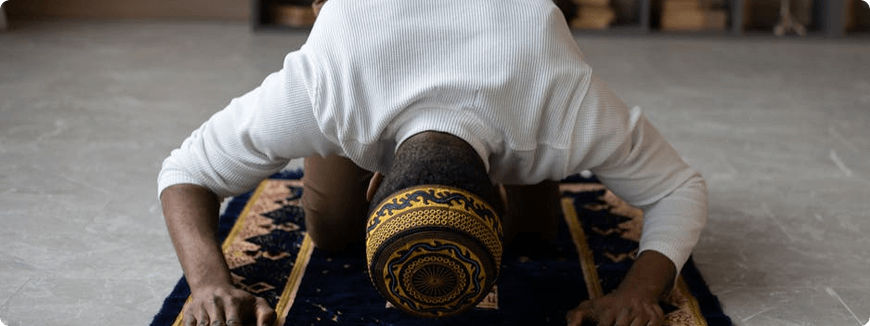
It is the means towards a heart to heart communication that can be made with Allah the Almighty. Dua does not need any medium for its transmission. There is no direct condition involved, unlike other ibadats like the five times prayers, where one has to observe wudu or ablution or recitation of Quran or other voluntary acts of worship.
Dua is a means of seeking immediate help from the only one who can provide , the Sustainer and the Nourisher, He the Almighty is Al-Razzaq, He is Al-Aleem , who is the All knowing and He knows what His servants or His obedient slave needs at what time, so He Provides accordingly.
Also see: The Power of Dua.
Also see: The Power of Dua.
وَقَالَ رَبُّكُمُ ادۡعُوۡنِىۡۤ اَسۡتَجِبۡ لَكُمۡؕ اِنَّ الَّذِيۡنَ يَسۡتَكۡبِرُوۡنَ عَنۡ عِبَادَتِىۡ سَيَدۡخُلُوۡنَ جَهَنَّمَ دَاخِرِيۡنَ
Your Lord says, ‘Call on Me and I will answer you; those who are too proud to serve Me will enter Hell humiliated.’
In another place in the Quran, Allah the Almighty says: in Surah Baqarah, chapter #2, verse 186.
وَاِذَا سَاَلَـكَ عِبَادِىۡ عَنِّىۡ فَاِنِّىۡ قَرِيۡبٌؕ اُجِيۡبُ دَعۡوَةَ الدَّاعِ اِذَا دَعَانِ فَلۡيَسۡتَجِيۡبُوۡا لِىۡ وَلۡيُؤۡمِنُوۡا بِىۡ لَعَلَّهُمۡ يَرۡشُدُوۡنَ
[Prophet], if My servants ask you about Me, I am near. I respond to those who call Me, so let them respond to Me, and believe in Me, so that they may be guided.
In a Prophetic narration Prophet Muhammad صلى الله عليه وسلم , emphasized that Allah the Almighty gets angry when people consider themselves self-reliant and self-suffiecient and do not reach out or call out to Him in supplication, which indicates that they are not needy of Him. Whereas the state of a momin is such that he should always be humble and act in a way that indicates his reliance and dependence totally on Allah the Exalted. So when a momin does not reach out to Allah the Glorious for any of his needs then this is a sign of arrogance on his part which is most disliked by Allah the Almighty.
As our beloved prophet صلى الله عليه وسلم the messenger of Allah the Almighty indicates that : “ Reach out to your Lord the Almighty and make dua to Him and ask Him for help even if it is for such a tiny thing as a shoelace!”
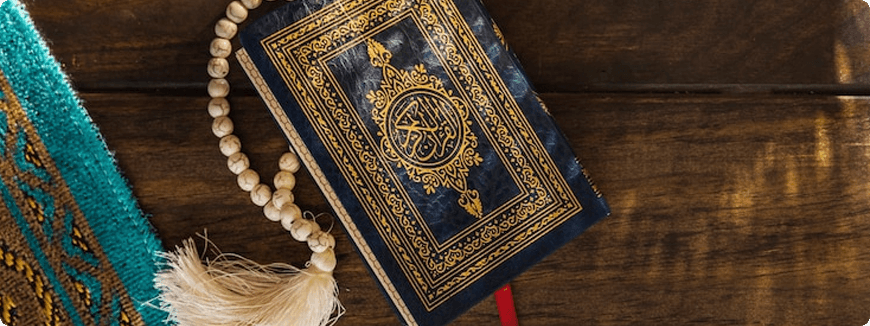
The only problem is that most of us do not even know how to make a heartfelt plea or dua to our Creator who is more closer to us than our jugular vein. We struggle and feel at a loss of words when we are making dua and normally just utter a few sentences we have retained in our memory since childhood.
This is so unfortunate that a believer can talk to his spouse or friends or any loved ones for hours and hours at end and when it comes to making dua which is nothing but a form of communication or in simpler words talking to Allah the Almighty then we just feel tongue tied and not even able to make a decent conversation on our part.
Hence it is imperative to acquire some manners and etiquettes and some actions to make our duas more effective and purposeful. It will take some practice on the part of the momin or believer to inject some substance since we are not normally in the habit of making meaningful conversations with Allah the Glorious.
Sunnah and Etiquettes of Making Dua:
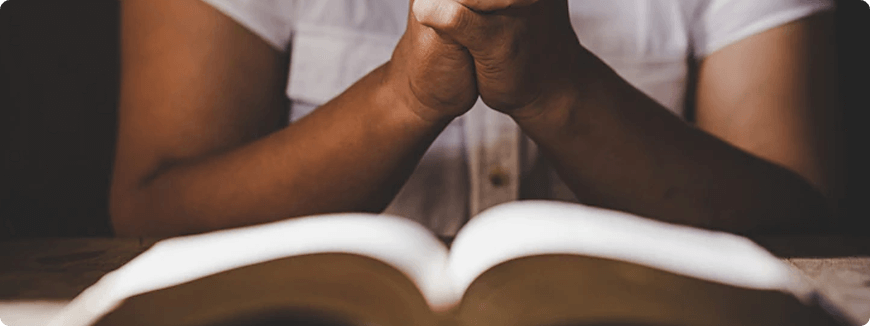
Everyone can make du’a but it takes knowledge to make du’a in the best of manners, in perfection and with Ihsan.
The way to achieve utmost perfection and quality is by learning the necessary Sunnah and etiqutte in making dua. One of the most important things to remember is that we are asking Allah the Most High, The One who Creates all things, the One who is Most Powerful.
We have to remember that to make dua to Allah, we have to do it with reverence, with respect so that we gain Allah’s Divine Mercy, Blessings and Favour. The way we ask makes all the difference.
Praise Allah the Glorious
No du’a is complete without its introduction, which is to Praise Allah the Glorious with His 99 Divine Attributes. To praise Allah Almighty before we even speak to Him, to revere Him.
Some of the most Names you can mention in your du’as are Ar-Rahman (The Most Compassionate), Ar-Rahim (The Most Merciful), Al-Ghafur (The Most Forgiving), Al-Wahhab (The Giver of Gifts) and more.
Send Salutations on the Prophet(صلى الله عليه وسلم)
One of the etiquettes of making du’a is to send Salawat upon our beloved Prophet Muhammad ﷺ. This is a means of drawing closer to Allah Almighty and increasing the likelihood of our supplications being accepted.
Besides dhikr, sending salutations upon the Prophet ﷺ also invites Allah’s Divine Blessings and Mercy, Insha’Allah.
Use Allah’s Beautiful Names
Allah has 99 Beautiful Names or known as the Asma’ul Husna, and invoking them while making du’a strengthens our connection with Him. Call upon Him using the Name that is most relevant to your request. For example:
- If seeking forgiveness, say: "Ya Ghaffar, Ya Tawwab" (O Forgiving One, O Accepter of Repentance).
- If asking for provision, say: "Ya Razzaq" (O Sustainer).
- If seeking guidance, say: "Ya Hadi" (O Guide).
Face the Qiblah (Optional)
Facing the Qiblah while making du’a is recommended, as it reflects devotion and direction towards the Ka’bah.
Perform Ablution (Recommended)
Being in a state of wudhu (ablution) enhances the purity of both our body and heart, allowing us to be in a spiritually uplifted state when making du’a.
Raise Your Hands in Supplication
The Prophet ﷺ taught that raising one’s hands while making du’a is a sign of humility and sincerity. It is as if we are begging before Allah Almighty, acknowledging our need for His Divine Mercy.
Ask for All Your Needs
No request is too small or too great for Allah Almighty. Whether it is worldly needs or spiritual needs, ask Allah for everything. Do not underestimate yourself and the Power of Allah Almighty.
Have Firm Faith in Acceptance
To make du’a is to have absolute faith in Allah Almighty that he Hears and Sees your plead. Have absolute yaqeen (certainty) that Allah Almighty hears and responds to your du’a.
Even if you don’t see the answer immediately, trust that Allah’s response is always in your best interest.
Make Du’a for Others
When you make du’a for others, the angels respond to you as well. This is a powerful way to increase the blessings in your own life while seeking goodness for others.
Abu Dharr reported that Allah's Messenger (ﷺ) said:
There is no believing servant who supplicates for his brother behind his back (in his absence) that the Angels do not say: The same be for you too. [Sahih Muslim]
Say “Amin” at the End
Conclude your supplication by saying “Amin”, which means “O Allah, accept it.” This reinforces our sincerity and hope in Allah’s Mercy, and leaving all of our affairs, worries and requests ultimately to Allah Almighty.
Ask Frequently Without Losing Hope
Never stop making du’a, even if you don’t see immediate results. Allah’s timing is perfect — He knows when to grant what is best for us. Keep asking, with full trust that He will answer in the best way.
Scholars say that if a du’a is recited repeatedly, with consistency and faith, has the potential to change the course of their fate, and their du’as answered, Insha’Allah.
End with Salutations on the Prophet صلى الله عليه وسلم
Just as we begin with Salawat, we should end our du’a by again sending peace and blessings upon the Prophet Muhammad ﷺ. This completes the etiquette of making du’a beautifully, from start to finish.
Express Humility and Dependence
Approach Allah with a heart full of humility and dependence. Acknowledge that you are entirely in need of Him, just as a beggar stands before a generous Giver.
Cry, plead and do whatever your heart desires, as long as it’s out and you’ll feel much better after you’ve supplicated to Allah Almighty, Insha’Allah.
Call Allah in a Low and Humble Voice
Allah Almighty loves those who call upon Him with sincerity and humility. Instead of making loud, boastful requests, turn to Him with a soft, reverent voice, showing complete reliance on His Divine Mercy and Wisdom.
Content of dua:
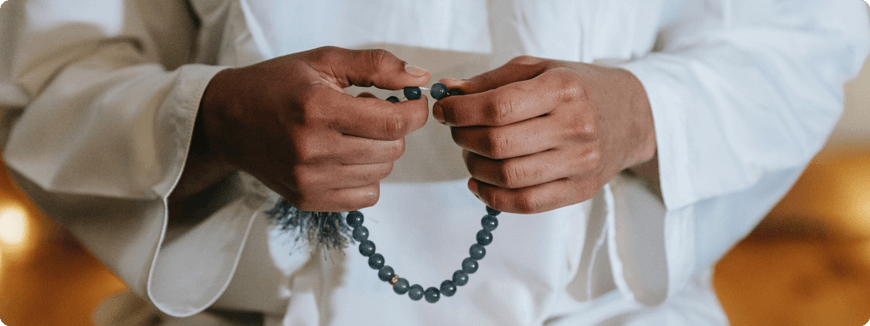
1. Ask Allah for exactly what you want. Talk to Allah like you’re having a conversation with Him. Describe to Him what’s on your mind. Tell Him how you feel. Be very precise in your dua.
2. When making dua for all the Muslims around the world, don’t just end it at “Allah help all the Muslims.” Rather, be specific, describe to Allah what's going on. Ask Him specifically for those in Rohingya, in Syria, in Gaza etc. For that, one needs to be aware of what’s happening to our brothers and sisters around the world. So it is important to stay aware and make dua for them all.
3. Sometimes when we make dua, we run out of things to say and so we say ‘amin’ and end our dua quickly. However, don’t give up, when you face that silence in your dua, try to remain focussed and aware, eventually think of many more things to make dua for.
Benefits of Making Dua
There is no disadvantage to making du’a, so the question remains; What are the benefits of making dua to Allah Almighty? To be completely vulnerable, relying on His Divine Power to help you, to hear you out, and to be near you?
Seek Help
Making du’a is the most powerful way to seek Allah’s Divine Assistance in all matters, no matter how big or small.
When we feel helpless, lost, or in distress, we turn to Al-Wahhab (The Giver of Gifts) and Al-Mujeeb (The One Who Responds), trusting that He will answer our call.
وَقَالَ رَبُّكُمُ ٱدْعُونِىٓ أَسْتَجِبْ لَكُمْ ۚ إِنَّ ٱلَّذِينَ يَسْتَكْبِرُونَ عَنْ عِبَادَتِى سَيَدْخُلُونَ جَهَنَّمَ دَاخِرِينَ
Your Lord says, ‘Call on Me and I will answer you; those who are too proud to serve Me will enter Hell humiliated.’ [Qur’an 40:60]
Forgiveness of Sins
Du’a is a means of seeking Allah’s Divine Forgiveness and cleansing our hearts of past mistakes.
By sincerely repenting and asking Al-Ghafur (The Most Forgiving) for His Forgiveness, we open the doors to His Forgiveness and Redemption.
Abu Hurairah (May Allah be pleased with him) reported:
The Prophet (ﷺ) said, "Allah, the Exalted, and Glorious said: 'A slave committed a sin and he said: O Allah, forgive my sin,' and Allah said: 'My slave committed a sin and then he realized that he has a Rubb Who forgives the sins and punishes for the sin.' He then again committed a sin and said: 'My Rubb, forgive my sin,' and Allah (SWT) said: 'My slave committed a sin and then realized that he has a Rubb Who forgives his sin and punishes for the sin.' He again committed a sin and said: 'My Rubb, forgive my sin,' and Allah (SWT) said: 'My slave has committed a sin and then realized that he has a Rubb Who forgives the sin or takes (him) to account for sin. I have granted forgiveness to my slave. Let him do whatever he likes". [Al-Bukhari and Muslim]
Relief from Stress and Anxiety
Turning to Allah in du’a brings peace of mind and heart. It is a moment of direct communication with our Creator, allowing us to release our worries and find comfort in His care. The Prophet ﷺ said:]
He and Abu Sa'id reported the Prophet as saying, “No Muslim is afflicted by difficulty, continuous pain, anxiety, grief, injury, or care, or even by a thorn with which he is pierced, without God thereby making an atonement for his sins.” (Bukhari and Muslim.)
Opportunity for Reflection and Self-Assessme
When we make du’a, we naturally reflect on our actions, intentions, and needs. It is a moment of deep self-awareness, allowing us to recognize our shortcomings, realign our priorities, and renew our faith.
That also means that du’a invites us to think, which is one of the traits that Allah Almighty loves to see in His servants.
وَسَخَّرَ لَكُم مَّا فِى ٱلسَّمَـٰوَٰتِ وَمَا فِى ٱلْأَرْضِ جَمِيعًۭا مِّنْهُ ۚ إِنَّ فِى ذَٰلِكَ لَـَٔايَـٰتٍۢ لِّقَوْمٍۢ يَتَفَكَّرُونَ
He has subjected all that is in the heavens and the earth for your benefit, as a gift from Him. There truly are signs in this for those who reflect. [Qur’an 45:13]
Bringing About Change
Du’a has the power to change our circumstances and open doors we never imagined. The Prophet ﷺ said:
"Nothing changes the Divine Decree except du’a." (Tirmidhi)
This teaches us that du’a is a powerful tool that can influence our fate, provided we ask with sincerity and conviction.
Purification of the Heart
The act of calling upon Allah Almighty and surrendering our worries to Him purifies our hearts as we connect wtih our Creator in the most vulnerable and intimate way through prayer.
With a purified heart, it helps us develop qualities like patience, gratitude, and humility, freeing us from arrogance and reliance on worldly means alone.
Gain Pleasure of Allah
When we turn to Allah frequently in du’a, it is a sign of our devotion and trust in Him. Allah loves when His servants call upon Him, and by making du’a consistently, we increase in faith and earn His Divine Pleasure.
"And your Lord says, ‘Call upon Me; I will respond to you.’" [Qur’an 40:60]
Making du’a is an act of worship that strengthens our connection with Allah Almighty, brings inner peace, and grants us countless blessings in this life and the Hereafter.
Allah Answers our duas in three ways:
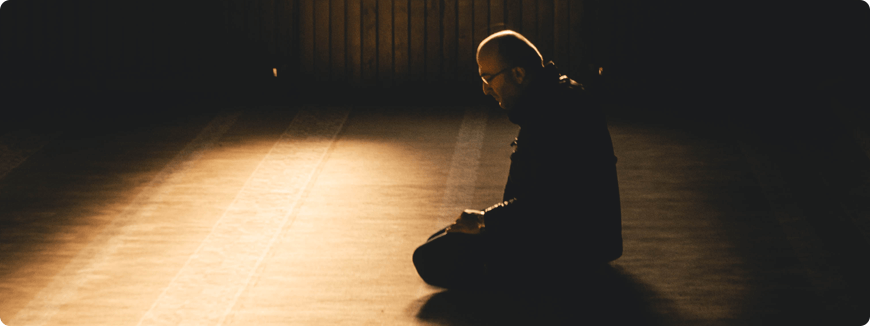
If the dua is not being accepted immediately, there is a reason not known to us since we are creation and Allah the Almighty is the creator, so trust in the plans of Allah the Glorious and know that there are some divine reasons and wisdom which is beyond our limited human capacity to comprehend and make sense of.
Nevertheless it is important to know that Allah the Exalted works in mysterious ways and we should never tire of making dua for our each and every need since there are ways in which He the Praise worthy Creator answers our duas.
Moreover, it is extremely important to trust in Allah and have certainty that He will answer our duas.
The Prophet صلى الله عليه وسلم said, ’There is no Muslim who calls upon Allah, without sin or cutting family ties, but that Allah will give him one of three answers: He will quickly fulfil his supplication, He will store it for him in the Hereafter, or He will divert an evil from him similar to it’. They said, ‘In that case we will ask for more’. The Prophet صلى الله عليه وسلم said, ′Allah has even more’. [ Masnad Ahmad]
Therefore, while making du’a, we should not be hesitant or uncertain; and afterwards, we should not question whether or not Allah has answered our duas.
Hence from the above narration, we get to know that Allah the Almighty answers our supplication in three ways:
- Either it will be accepted at once and the person making the dua for a specific need will be granted what he asked for immediately.
- The dua may not be accepted immediately, there might be a delay in it or a hardship will be averted from him in lieu of making that dua. In other words Allah the Almighty will answer his supplication in some other manner as He knows best.
- As it comes in the Quran ( Surah Baqarah, chapter 2: verse 216), that a believer might prefer something good for himself and he will make dua for that , whereas Allah’s plans might be different and in Allah the Almighty eternal knowledge that thing might be destructive so the believer may not get what he desires. On the other hand there might be something which the believer dislikes and he refrains from it to his utmost ability but on the other hand Allah the Almighty knows that it is beneficial for him. So a believer should always trust the plans of Allah the Exalted. As Allah knows Best.
- Although this particular verse was revealed in the context of jihad, it's relevant and applicable as a general rule or principle in the context of making dua as well.
وَاذۡكُر رَّبَّكَ فِىۡ نَفۡسِكَ تَضَرُّعًا وَّخِيۡفَةً وَّدُوۡنَ الۡجَـهۡرِ مِنَ الۡقَوۡلِ بِالۡغُدُوِّ وَالۡاٰصَالِ وَلَا تَكُنۡ مِّنَ الۡغٰفِلِيۡنَ
“Fighting is ordained for you, though you dislike it. You may dislike something although it is good for you, or like something although it is bad for you: God knows and you do not.”
- Third way is that the dua will not be answered at all for the momin in this world. Allah the Almighty will preserve it for him in Akhirah or hereafter, and that might work out in the best way for him. Since this world is very inferior and fleeting or temporary compared to Akhirah which is priceless and eternal. So one must never lose heart or hope that if his dua was not answered immediately or with delay then it means that there is some problem and Allah the Almighty does not want good for him. This is all Satan the devil or the trap of Iblis as he tries to divert the believer from the path of Allah and righteousness and create hurdles and different types of doubts or waswasa in the heart of momin against his creator.
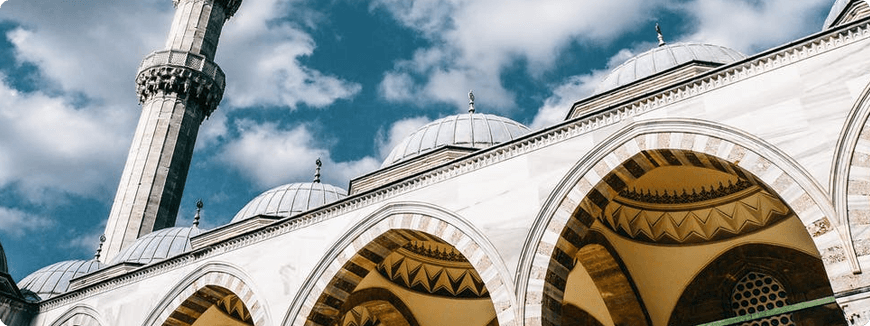
- So the believer must never be in a state of ungratefulness or make judgements based on this notion that his dua is not accepted because Allah the Almighty doesn't want anything good for him or that Allah the Almighty is angry with him or does not answer his prayers whereas he is going on making duas and pleading earnestly.
- So if we do not recognize this trap we will ultimately get frustrated and fall into this depressive state of sadness and rejection. Whereas a momin should always have a good notion that his Lord will do what's best for him and since we are such hasty creatures and we want instant results for our efforts and instant fulfillment of our needs so after couple of days or weeks we just stop and get dejected and leave the dua and prayer or worship altogether. Whereas Allah the Almighty has an endless vision which is beyond our limits .
- It is very much like if we look at a timeline we can only see the events in a certain scope or duration, whereas Allah the Glorious has an infinite scope of viewing the timeline from the Akhirah’s perspective which is as yet an unseen domain for us. That is why it is so easy to get lost and lose track of our destination while throwing our most precious asset away which is dua .
- As our beloved prophet صلى الله عليه وسلم also pointed out the very same fallacy to us in a narration that :
“ When a believer sees all the rewards in store for him in Akhirah in lieu of all his duas that were not fulfilled in this world, then he would desire and wish that none of his duas were accepted in dunya and all of it were stored for him in akhirah or hereafter.”
( Tirmidhi)
( Tirmidhi)
- Thus, we should be patient while waiting for an answer from Allah.
- The Prophet صلى الله عليه وسلم said, ‘The servant will continue to have his supplications answered as long as he does not ask for sin or cut family ties, and he is not impatient’.
They said, ‘O Messenger of Allah, what is its impatience?’ The Prophet صلى الله عليه وسلم said, ’He says, ”I have supplicated again and again, but I have not seen an answer”. He becomes frustrated with that and gives up supplicating”’.
[Bukhari]
[Bukhari]
- We must always remember that Allah is Ash-Shakur (The Appreciative One) and Ar-Rahman (The Most Gracious or Compassionate); therefore, we can never have doubt that He hears our duas and He will answer in the best way for us.
- We should also keep this in mind that performing good deeds, voluntary sada or charity, serving our parents in the best manner and maintaining firm ties of kinship also result in increasing our chances of acceptance of duas as it is backed up by Quran and authentic narrations of Prophet صلى الله عليه وسلم.
Learn from the Best Muslim Scholars
Fiqh
Aqidah
Qur'an
Sirah
Write your awesome label here.
Tafsir Al-Fatiha
Write your awesome label here.
Tafsir Surah Yasin
Write your awesome label here.
Tafsir and Reflection on the Qur'an
Write your awesome label here.
The Sublime Qualities and Portrait of Muhammad ﷺ (Part 1)
Write your awesome label here.
Seerah Retreat (Part 1)
Write your awesome label here.
Sacred Journeys: Reflections upon the Abyssinian and Madinan Migrations (Hijrah)
The best times to make dua:

There are many times when the believer’s dua is readily accepted, some of them are mentioned below:
- Tahajjud prayer or during the last one-third portion of the night. It is the time when Allah the Almighty accepts the duas of a pleading worshipper most readily. So if you really want something that you desperately wish to attain or any sin or addiction that you want to get rid of, this is the optimal time for it.
Allah the Almighty says: “Who will call upon Me, that I may answer Him? Who will ask of Me, that I may give him? Who will seek My forgiveness, that I may forgive him?” narrated by al-Bukhaari, 1145.
- Dua is also accepted between the times of Adhan which is the call for prayer and the Iqama which is the call for congregational prayer.It is narrated in a sahih report that the Prophet صلى الله عليه وسلم said:
“A du’aa’ offered between the adhaan and iqaamah is not rejected.” Narrated by Abu Dawood (521) and al-Tirmidhi (212).
- While making sujood in salaah or prostrating. The Prophet صلى الله عليه وسلم said:
“The closest that a person is to his Lord is when he is prostrating, so say a great deal of du’aa’ then.” Narrated by Muslim, 482.
- After each fardh salaah or obligatory prayer.According to the hadeeth of Abu Umamah, it was said:
“O Messenger of Allah, which dua’ is heard?” He said: “In the last third of the night, and following the prescribed prayers.” Narrated by al-Tirmidhi, 3499;
- When it rains the dua is accepted.
- On the day of Arafah at the time of waqoof e Arafat.
- When a person is travelling and he makes dua then his dua is accepted.
- In the month of Ramadan specifically in the last ten odd nights of worship.
- During the night of Layla tul Qadar.
- It was narrated that ‘Aa’ishah asked the Prophet صلى الله عليه وسلم : “If I know what night is Laylat al-Qadr, what should I say during it?” He said: “Say:
اللھم انک عفوا تحب العفو فاعف عنی
“ Allahumma innaka 'afuwwun tuhibbul-‘afwa fa’fu ‘anni (O Allah, You are forgiving and love forgiveness, so forgive me).”
- At the time of breaking the fast and suhoor time.
- When a person is going to visit a sick person . It is narrated that Umm Salamah said: The Messenger of Allah صلى الله عليه وسلم said:
“When you visit a sick person, say good things, for the angels say Ameen to whatever you say…”(Muslim 919)
- During a certain time on Friday, there is some debate among the religious scholars or Ulema as to the exact pinpointing of that time, however the most preferred opinions are either the time when the imam comes to make jumma khutba or between the jumma khutba and the congregational prayer, and finally the time between the asar and maghrib prayer. Some say that the whole day of friday is masnun or preferred for acceptance of dua.
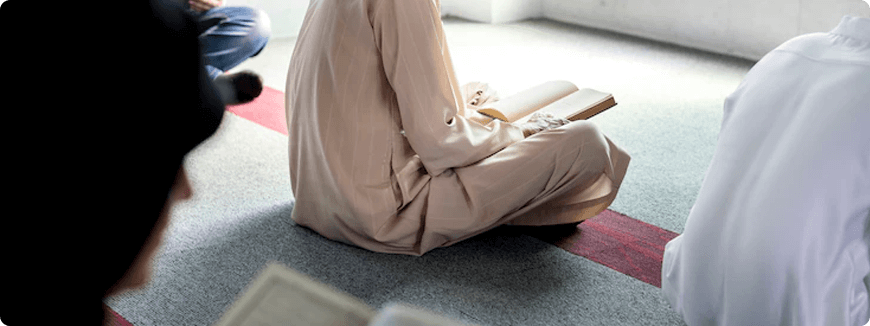
The Messenger of Allah صلى الله عليه وسلم mentioned Friday and said:
The Messenger of Allah صلى الله عليه وسلم mentioned Friday and said:
“During it there is a time when a Muslim slave does not stand and pray and ask Allah for something, but He will give it to him,” and he gestured with his hand to indicate how short that time is. Narrated by al-Bukhaari, 935; Muslim, 852.
“During it there is a time when a Muslim slave does not stand and pray and ask Allah for something, but He will give it to him,” and he gestured with his hand to indicate how short that time is. Narrated by al-Bukhaari, 935; Muslim, 852.
- At the time you hear the call of the rooster for fajr or dawn break according to authentic narration by our beloved prophet صلى الله عليه وسلم :
“When you hear the crowing of a rooster, ask Allah of His bounty, for he has seen an angel.” Narrated by al-Bukhaari, 2304; Muslim, 2729.
Signs that your Dua is Accepted:

Dua of Istikhara is the way that one can be certain of knowing if their dua is being accepted or not.
"Istikhara" means to seek goodness from Allah (Exalted is He), meaning when one intends to do an important task they do istikhara before the task. The one who performs Istikhara does the istikhara is as if they request Allah Almighty that, O the Knower of Unseen (Exalted is He) guide me if this task is better for me or not? In other words, it is seeking the advice and consultation of Allah the Almighty in all matters and situations that one encounters in life, whether it is change of career, health, marriage or spouse, children, financial hence any thing that one might encounter which presents a believer a choice of which path to take. Many times in life we find ourselves at crossroads thinking of which decision would be most beneficial to us. So here the prophetic sunnah tells us the best way to seek counsel is by doing istikhara and it will pave the way for the momin to know if his dua that he was making is being accepted or not.
According to Bukhari, Volume 2, Book 21, Number 263:
The Prophet صلى الله عليه وسلم used to teach us the way of doing Istikhara, in all matters as he taught us the Suras of the Quran. He said, "If anyone of you thinks of doing any job he should offer a two Rakat prayer other than the compulsory ones and say (after the prayer):
Narrated Jabir bin 'Abdullah :
Narrated Jabir bin 'Abdullah :
اللَّهُمَّ إِنِّي أَسْتَخِيرُكَ بِعِلْمِكَ وَأَسْتَقْدِرُكَ بِقُدْرَتِكَ وَأَسْأَلُكَ مِنْ فَضْلِكَ الْعَظِيمِ فَإِنَّكَ تَقْدِرُ وَلَا أَقْدِرُ وَتَعْلَمُ وَلَا أَعْلَمُ وَأَنْتَ عَلَّامُ الْغُيُوبِ اللَّهُمَّ إِنْ كُنْتَ تَعْلَمُ أَنَّ هَذَا الْأَمْرَ خَيْرٌ لِي فِي دِينِي وَمَعَاشِي وَعَاقِبَةِ أَمْرِي فَاقْدُرْهُ لِي وَيَسِّرْهُ لِي ثُمَّ بَارِكْ لِي فِيهِ وَإِنْ كُنْتَ تَعْلَمُ أَنَّ هَذَا الْأَمْرَ شَرٌّ فِي دِينِي وَمَعَاشِي وَعَاقِبَةِ أَمْرِي فَاصْرِفْهُ عَنِّي وَاصْرِفْنِي عَنْهُ وَاقْدُرْ لِيَ الْخَيْرَ حَيْثُ كَانَ ثُمَّ ارْضِنِي بِهِ
TRANSLATION: "O Allah! I seek goodness from Your Knowledge and with Your Power (and Might) I seek strength, and I ask from You Your Great Blessings, because You have the Power and I do not have the power. You Know everything and I do not know, and You have knowledge of the unseen. Oh Allah! If in Your Knowledge this action which I intend to do) is better for my religion and faith, for my life and end [death], for here [in this world] and the hereafter then make it destined for me and make it easy for me and then add blessings [baraka'] in it, for me. O Allah! In Your Knowledge if this action is bad for me, bad for my religion and faith, for my life and end [death], for here [in this world] and the hereafter then turn it away from me and turn me away from it and whatever is better for me, ordain [destine] that for me and then make me satisfied with it."
Compilation of Essential Duas:
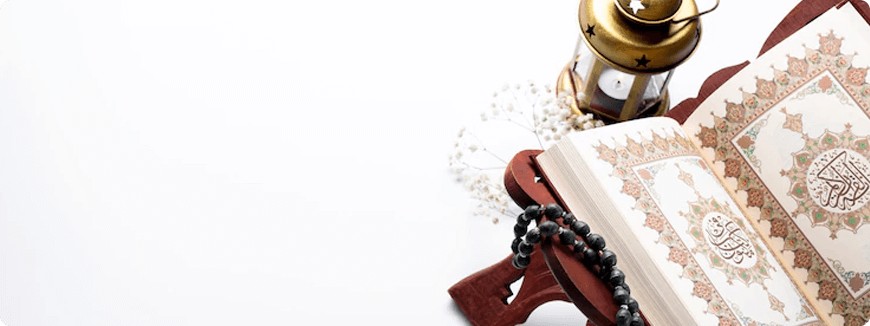
There are numerous duas which are narrated from Sunnah and as mentioned earlier in this article in fact a muslim’s every act is coupled with a dua no matter whatever state he finds himself in. This is for the sole reason that a servant and his Master Allah the Almighty should have a constant connection amongst themselves.
In addition to that there are numerous duas quoted in the Quran which are narrated from the prophets. May Allah the Exalted have mercy on all of them.
Here we will mention only a selected number of duas for referring to in need in appropriateness of the occasion .
Dua to seek help and assistance from Allah:
1. Surah Fatiha.
According to the authentic scholars of shariah , our pious predecessors especially the companions were in regular habit of reciting surah fatiha for every need. In fact it is commonly used as Ruqya sharia in seeking help in treatment of illness as well from Allah the Exalted.
اَلۡحَمۡدُ لِلّٰهِ رَبِّ الۡعٰلَمِيۡنَۙ﴿۱﴾الرَّحۡمٰنِ الرَّحِيۡمِۙ ﴿۲﴾مٰلِكِ يَوۡمِ الدِّيۡنِؕ ﴿۳﴾
اِيَّاكَ نَعۡبُدُ وَاِيَّاكَ نَسۡتَعِيۡنُؕ ﴿۴﴾اِهۡدِنَا الصِّرَاطَ الۡمُسۡتَقِيۡمَۙ ﴿۵﴾صِرَاطَ الَّذِيۡنَ اَنۡعَمۡتَ عَلَيۡهِمۡ ۙ غَيۡرِ الۡمَغۡضُوۡبِ عَلَيۡهِمۡ وَلَا الضَّآلِّيۡنَ ﴿۶﴾
1. In the name of God, the Lord of Mercy,the Giver of Mercy!c
2. Praise belongs to God, Lord of the Worlds,e
3. the Lord of Mercy,the Giver of Mercy,
4. Master of the Day of Judgement.
5. It is You we worship; it is You we ask for help.
6. Guide us to the straight path:
3. the Lord of Mercy,the Giver of Mercy,
4. Master of the Day of Judgement.
5. It is You we worship; it is You we ask for help.
6. Guide us to the straight path:
7. the path of those You have blessed, those who incur no angerf and who have not gone astray.
لَا إِلٰهَ إِلَّا أَنْتَ سُبْحَانَكَ إِنِّي كُنْتُ مِنَ الظَّالِمِينَ
None has the right to be worshiped except You. How perfect You are, verily I was among the wrong-doers
يا حي يا قيوم بك استغيث فاصلح لي شاني كله فلا تكلني الي نفسي طرفة عين لا اله الا انت
Translation:
O Allah the Almighty the eternal living , the affirmer of the heavens and earth from You I beg Your divine assistance please guide me and make all my affairs right and do not leave me to my base desires for even the blink of an eye, there is no deity worthy of being worshipped except You alone.
Dua to protect oneself against all Harm:

بِسْمِ اللَّهِ الَّذِي لَا يَضُرُّ مَعَ اسْمِهِ شَيْءٌ فِي الْأَرْضِ وَلَا فِي السَّمَاءِ وَهُوَ السَّمِيعُ الْعَلِيمُ
Bismillahil-lazi la yadhurru ma’asmihi syai’un fil ardhi wa la fis-sama’i wa huwas-Sami’ul 'Aleem
In the Name of Allah with Whose Name there is protection against every kind of harm in the earth or in heaven, and He is All-Hearing and All-Knowing
(Sunan Abu Dawud)
(Sunan Abu Dawud)
اللَّهُمَّ احْفَظْنِي مِنْ بَينِ يَدَيَّ, وَمِنْ خَلْفِي, وَعَنْ يَمِينِي, وَعَنْ شِمَالِي وَمِنْ فَوْقِي, وَأَعُوذُ بِعَظَمَتِكَ أَن أُْغْتَالَ مِنْ تَحْتِي
Allahummah-fazni min baini yadaiya, wa min khalfi, wa ‘an yameeni, wa ‘an shimali wa min fauqi, wa a’uzu bi’azomatika an ughtala min tahti
O Allah protect me from my front, behind me, from my right and my left, and from above me, and I seek refuge in Your Magnificence from being taken unaware from beneath me
(Sunan Ibn Majah)
(Sunan Ibn Majah)
أَعُوذُ بِكلِمَاتِ الله التّامّاتِ مِن شَرّ مَا خَلَقَ
A’uzu bikalimatillahit-tammati min sharri ma khalaqa
I seek protection in the perfect words of Allah from every evil that has been created
(Sahih Muslim)
(Sahih Muslim)
Allahumma inni a’uzubika minal barsi, wal junuun wal juzam, wa min sayyi’-il-asqam
O Allah, I seek refuge in You from leprosy, madness, elephantiasis, and evil diseases
(Sunan Abi Dawud)
(Sunan Abi Dawud)
These prayers are encouraged to be read daily, particularly in the morning and in the afternoon.
Dua for good health and well being:
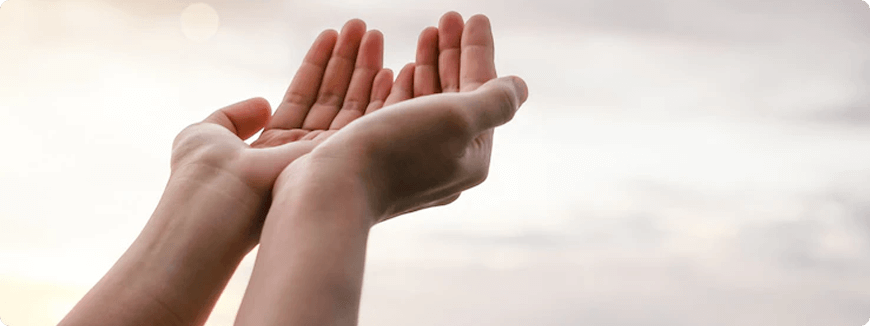
اللَّهُمَّ إِنِّي أَسْأَلُكَ الْعَفْوَ وَالْعَافِيَةَ فِي الدُّنْيَا وَالآخِرَةِ
Allahumma inni as’alukal-’afwa wal ‘afiyah fid-dunya wal-akhirah
O Allah, I seek Your forgiveness and my well-being in this world and the Hereafter
(Sunan Ibn Majah)
(Sunan Ibn Majah)
اللهم إني أسألك صحة و عفة و امانت و حسن الخلق و رضا بالقدر
Translation:
O Allah the Almighty I implore you to grant me good health, and wellness, chastity, trustworthiness, good conduct and to be content with what is written my destiny.
Dua for increase in sustenance:

اَللّٰهُمَّ أَطْعِمْ مَنْ أَطْعَمَنِي وَاسْقِ مَنْ سَقَانِي
O Allah The Almighty, feed him who fed me and give him to drink who gave to drink.
اللهم اغفر لي ذنبي ووسع لي داري وبارك لي في رزقي
O Allah forgive all my sins and grant me spacious residence and place barakah in my sustenance.
Dua to gain confidence:
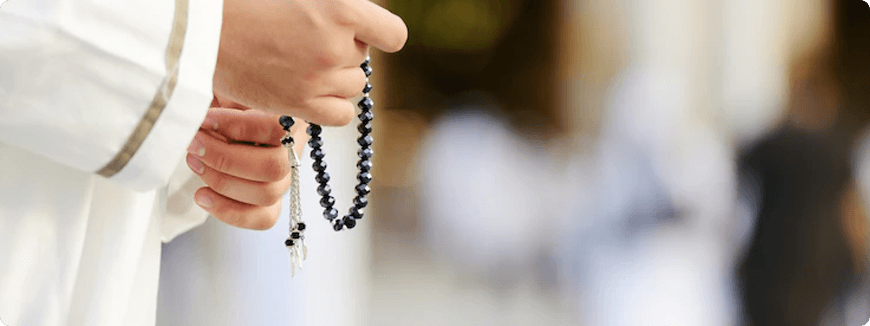
رَبِّ اشْرَحْ لِي صَدْرِي وَيَسِّرْ لِي أَمْرِي وَاحْلُلْ عُقْدَةً مِّن لِّسَانِي يَفْقَهُوا قَوْلِي
Rabbi-shrah li sadri, wa yassir li amri, wahlul uqdatan min lisani yafqohu qawli
"Lord, lift up my heart and ease my task for me. Remove the impediment from my tongue so that they may understand my speech."
(Surah Taha, 20:25-28)
(Surah Taha, 20:25-28)
Dua to learn better:
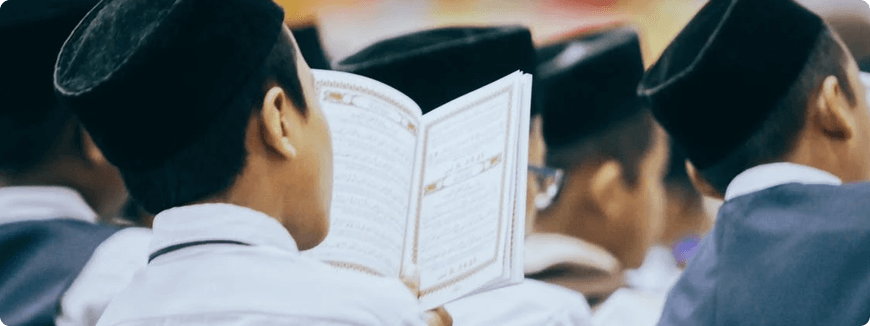
ربی زدنی علما
O Allah increase me in my quest for knowledge.
اللھم انی اسئلک علما نافعا
O Allah I beg you to provide me with beneficial knowledge.
اللهم انفعني بما علمتني وعلمني ما ينفعني و زدني علما
O Allah grant me benefit from the knowledge that you provide me with and grant me that knowledge which benefits me and increase me in my quest for ilm.
Dua to gain Barakah:
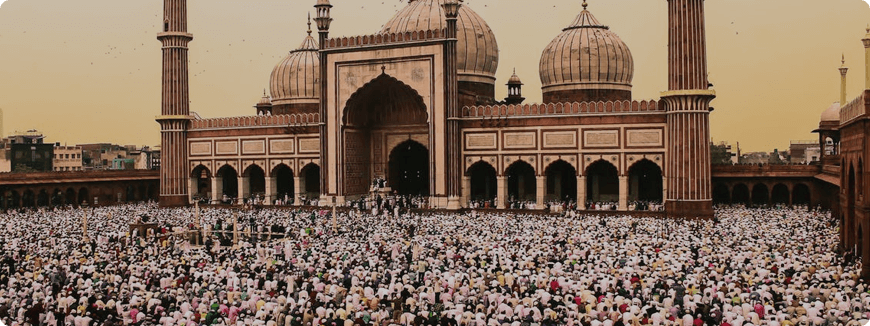
اللھم بارک لھم فی ما رزقتھم
O Allah Place baraqah in the rizq which you have provided them.
اللهم اغفر لي ذنبي ووسع لي داري وبارك لي في رزقي
O Allah forgive all my sins and grant me spacious residence and place barakah in my sustenance.
Dua for parents:

رَّبِّ ارْحَمْهُمَا كَمَا رَبَّيَانِي صَغِيرًا
Rabbir Hamhuma kama rabbayani sagheera
“My Lord! Be merciful to them as they raised me when I was young.”
(Surah Al-Isra’ 17:24)
(Surah Al-Isra’ 17:24)
رَبِّ أَوْزِعْنِي أَنْ أَشْكُرَ نِعْمَتَكَ الَّتِي أَنْعَمْتَ عَلَيَّ وَعَلَىٰ وَالِدَيَّ وَأَنْ أَعْمَلَ صَالِحًا تَرْضَاهُ وَأَدْخِلْنِي بِرَحْمَتِكَ فِي عِبَادِكَ الصَّالِحِينَ
Rabbi awzi'nī an ashkura ni'matikal-latī an'amta 'alayya wa 'ala wālidayya wa an a'mala salihan tardhāhu wa adkhilnī birahmatika fī 'ibādikas-saliheen
My Lord, inspire me to (always) be thankful for the blessings You have granted me and my parents, and to do good deeds that please You; admit me by Your grace into the ranks of Your righteous servants
(Surah An-Naml, 27:19)
(Surah An-Naml, 27:19)
رَّبِّ اغْفِرْ لِي وَلِوَالِدَيَّ وَلِمَن دَخَلَ بَيْتِيَ مُؤْمِنًا وَلِلْمُؤْمِنِينَ وَٱلْمُؤْمِنَٰتِ
Rabbana-ghfirlī wa liwālidayya wa liman dakhala baytī mu'minan wa-lilmu'minīna wal-mu'mināt
My Lord! Forgive me, my parents, and whoever enters my house in faith, and all believing men and women (Surah Nuh, 71:28)
Dua for children:
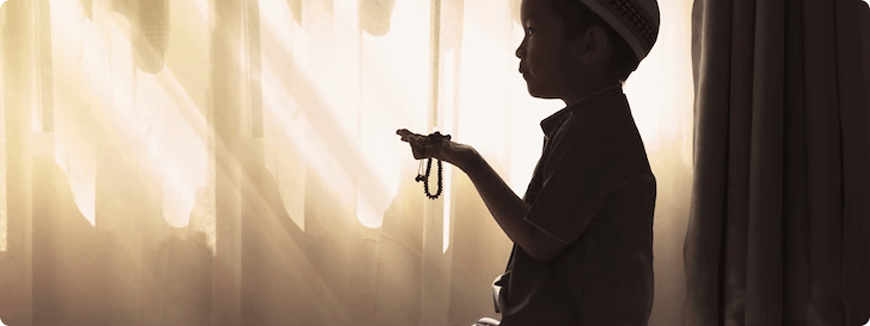
رَبَّنَا هَبْ لَنَا مِنْ أَزْوَاجِنَا وَذُرِّيَّاتِنَا قُرَّةَ أَعْيُنٍ وَاجْعَلْنَا لِلْمُتَّقِينَ إِمَامًا
Rabbana hab lana min azwajina wa zurriyatina qurrata a'yun in waj'alna lil muttaqina imama.
“Our Lord! Bless us with pious spouses and offspring who will be the joy of our hearts, and make us models for the righteous.”
(Surah Al-Furqan, 25:74)
(Surah Al-Furqan, 25:74)
رَبِّ هَبْ لِي مِنَ الصَّالِحِينَ
Rabbi hab lii minas-solihiin.
“My Lord! Bless me with righteous offspring.”
(Surah As-Saffat, 37:100)
رَبِّ اجْعَلْنِي مُقِيمَ الصَّلَاةِ وَمِنْ ذُرِّيَّتِي ۚ رَبَّنَا وَتَقَبَّلْ دُعَاءِ
Rabbij-’alni muqimas-salati wa min zurriyyati, Rabbana wa taqabbal du'a.
“My Lord, make me a means to establish prayer, and from my descendants. Our Lord, and accept my supplication.” (Surah Ibrahim, 14:40)
رَبَّنَا وَاجْعَلْنَا مُسْلِمَيْنِ لَكَ وَمِنْ ذُرِّيَّتِنَا أُمَّةً مُسْلِمَةً لَكَ وَأَرِنَا مَنَاسِكَنَا وَتُبْ عَلَيْنَا ۖ إِنَّكَ أَنْتَ التَّوَّابُ الرَّحِيمُ
Rabbana waj'alna muslimaini laka wa min zuriyyatina ummatan muslimatan laka wa-arina manasikana wa tub ‘alaina innaka anta at-tawwabur-rahim.
“Our Lord! Make us both (fully) submit to You and from our descendants a nation that will submit to you. Show us our rituals, and accept our repentance. You are truly the Acceptor of Repentance, Most Merciful.” (Surah Al-Baqarah, 2:128)
رَبِّ هَبْ لِي مِنْ لَدُنْكَ ذُرِّيَّةً طَيِّبَةً ۖ إِنَّكَ سَمِيعُ الدُّعَاءِ
Rabbi hab lii min ladunka zurriyyatan toyyibatan innaka samii’ud-du’aa.
"My Lord, grant me from Yourself a good offspring. Indeed, You are the Hearer of supplication." (Surah Ali ‘Imran, 3:38)
Dua for every day:
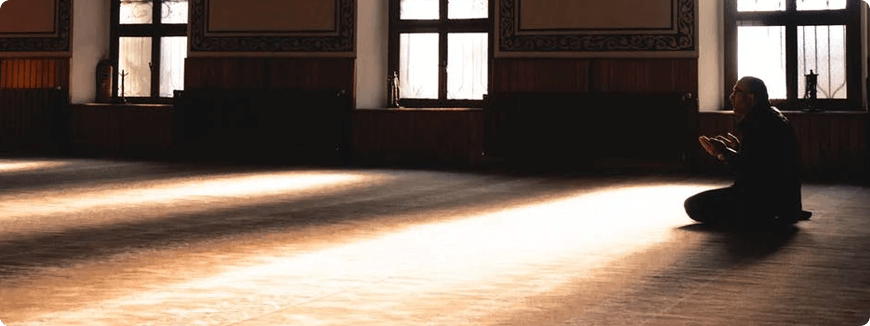
There are numerous duas which can be recited in the form of morning and evening Adhkar. They can be easily available in booklet or in pdf form.
However some of the common duas are being mentioned which one can recite after five daily obligatory prayers or even otherwise as well.
رَبَّنَآ ءَاتِنَا فِى ٱلدُّنْيَا حَسَنَةًۭ وَفِى ٱلْأخِرَةِ حَسَنَةًۭ وَقِنَا عَذَابَ ٱلنَّارِ
“Our Lord! Grant us the good of this world and the Hereafter, and protect us from the torment of the Fire” (Surah Al-Baqarah, 2:201)
اللَّهُمَّ إنِّي أَعُوذُ بِكَ مِن عَذَابِ جَهَنَّمَ، وَمِنْ عَذَابِ القَبْرِ، وَمِنْ فِتْنَةِ المَحْيَا وَالْمَمَاتِ، وَمِنْ شَرِّ فِتْنَةِ المَسِيحِ الدَّجَّالِ
Allāhumma inni a'ūzu bika min 'azābi jahannam, wa min 'azābil-qabr, wa min fitnatil-mahyā wal-mamāt, wa min sharri fitnatil-masīhil-dajjāl.
O Allah, I seek refuge with You from the torment of Hell, and I seek refuge with You from the torment of the grave, and (I seek refuge with You) from the trials of life and death, and (I see refuge with you) from the evil of tribulation of Masih Ad-Dajjal (antichrist)
(Sahih Al-Bukhari)
يَا مُقَلِّبَ الْقُلُوبِ ثَبِّتْ قَلْبِي عَلَى دِينِكَ
Yā Muqallib Al-qulūbi, thabbit qalbī 'alā dīnik.
O Controller of the hearts, make my heart steadfast in Your religion.
(Sunan At-Tirmizi)
(Sunan At-Tirmizi)
Many of the companions, including the mothers of the believers, Aisyah and Ummu Salamah r.a. reported that the Prophet صلی الله علیہ وسلم used to recite this Dua abundantly. This reveals to us the importance of this Dua in our lives.
اللَّهُـمَّ أَعِـنِّي عَلـَى ذِكْـرِكَ وَشُكْـرِكَ وَحُسْـنِ عِبَـادَتِـكَ
Allāhumma a’innī ’alā zikrika wa shukrika wa ḥusni ‘ibādatik
O Allah, help me to remember You, expressing gratitude towards You, and to worship You in the best manner. (Sunan Abi Dawud)
This is one of the Dua that the Prophet صلی الله علیہ وسلم encouraged us to read after our prayers. In fact, its significance can be seen when the Prophet صلی الله علیہ وسلم himself told his beloved companion, Muaz Ibn Jabal r.a. to never leave this Dua after prayer, as a sign of his love for Muaz.
اللَّهُمَّ أَنْتَ السَّلاَمُ وَمِنْكَ السَّلاَمُ، تَبَارَكْتَ يَا ذَا الْجَلاَلِ وَالإِكْرَامِ
Allāhumma Antas-Salām wa minkas-salām. Tabārakta yā Zal-jalāli wal- ikrām.
O Allah, You are As-Salam (Peace), From You is all peace, blessed are You O Possessor of majesty and honour. (Sunan At-Tirmizi)
Thawban, one of the companions r.a, reported that the Prophet صلی الله علیہ وسلم would recite the istighfar (seeking forgiveness) three times before reciting this Dua after every prayer.
لَا إِلَهَ إِلَّا اللهُ وَحْدَهُ لَا شَرِيكَ لَهُ، لَهُ الْمُلْكُ وَلَهُ الْحَمْدُ، وَهُوَ عَلَى كُلِّ شَيءٍ قًدِيرٌ. اَللَّهُمَّ لَا مَانِعَ لِمَا أَعْطَيتَ، وَلَا مُعْطِيَ لِمَا مَنَعْتَ، وَلَا يَنْفَعُ ذَا الْجَدِّ مِنْكَ الْجَدُّ
Lā ilāha illallāhu wahdahu lā sharika lahu, lahul-mulku wa lahul-hamdu, wa Huwa 'alā kulli shay-in Qadir. Allāhumma lā māni'a limā a'tayta, wa lā mu'tiya limā mana'ta, wa lā yanfa'u zal-jaddi minkal-jaddu.
There is no true deity except Allah. He is One and He has no partner with Him, His is the sovereignty and His is the praise, and He is Omnipotent. O Allah! None can deny that which You bestow and none can bestow that which You hold back, and the greatness of the great will be of no avail to them against You.
(Sahih Al-Bukhari and Muslim)
A companion, Al-Mughirah Ibn Shu’bah r.a, reported that the Prophet صلی الله علیہ وسلم used to recite this Dua after every prayer. It is also a good reminder for us that before we make our Dua to ask Allah the Almighty for our needs, we should start with words of praise and reorient ourselves by identifying our need for our Creator.
Benefits of Making Dua
There is no disadvantage to making du’a, so the question remains; What are the benefits of making dua to Allah Almighty? To be completely vulnerable, relying on His Divine Power to help you, to hear you out, and to be near you?
Seek Help
Making du’a is the most powerful way to seek Allah’s Divine Assistance in all matters, no matter how big or small.
When we feel helpless, lost, or in distress, we turn to Al-Wahhab (The Giver of Gifts) and Al-Mujeeb (The One Who Responds), trusting that He will answer our call.
Your Lord says, ‘Call on Me and I will answer you; those who are too proud to serve Me will enter Hell humiliated.’ [Qur’an 40:60]
When we feel helpless, lost, or in distress, we turn to Al-Wahhab (The Giver of Gifts) and Al-Mujeeb (The One Who Responds), trusting that He will answer our call.
وَقَالَ رَبُّكُمُ ٱدْعُونِىٓ أَسْتَجِبْ لَكُمْ ۚ إِنَّ ٱلَّذِينَ يَسْتَكْبِرُونَ عَنْ عِبَادَتِى سَيَدْخُلُونَ جَهَنَّمَ دَاخِرِينَ
Your Lord says, ‘Call on Me and I will answer you; those who are too proud to serve Me will enter Hell humiliated.’ [Qur’an 40:60]
Forgiveness of Sins
Du’a is a means of seeking Allah’s Divine Forgiveness and cleansing our hearts of past mistakes.
By sincerely repenting and asking Al-Ghafur (The Most Forgiving) for His Forgiveness, we open the doors to His Forgiveness and Redemption.
Abu Hurairah (May Allah be pleased with him) reported:
By sincerely repenting and asking Al-Ghafur (The Most Forgiving) for His Forgiveness, we open the doors to His Forgiveness and Redemption.
Abu Hurairah (May Allah be pleased with him) reported:
The Prophet (ﷺ) said, "Allah, the Exalted, and Glorious said: 'A slave committed a sin and he said: O Allah, forgive my sin,' and Allah said: 'My slave committed a sin and then he realized that he has a Rubb Who forgives the sins and punishes for the sin.' He then again committed a sin and said: 'My Rubb, forgive my sin,' and Allah (SWT) said: 'My slave committed a sin and then realized that he has a Rubb Who forgives his sin and punishes for the sin.' He again committed a sin and said: 'My Rubb, forgive my sin,' and Allah (SWT) said: 'My slave has committed a sin and then realized that he has a Rubb Who forgives the sin or takes (him) to account for sin. I have granted forgiveness to my slave. Let him do whatever he likes". [Al-Bukhari and Muslim]
Relief from Stress and Anxiety
Turning to Allah in du’a brings peace of mind and heart. It is a moment of direct communication with our Creator, allowing us to release our worries and find comfort in His care. The Prophet ﷺ said:
He and Abu Sa'id reported the Prophet as saying, “No Muslim is afflicted by difficulty, continuous pain, anxiety, grief, injury, or care, or even by a thorn with which he is pierced, without God thereby making an atonement for his sins.” (Bukhari and Muslim.)
He and Abu Sa'id reported the Prophet as saying, “No Muslim is afflicted by difficulty, continuous pain, anxiety, grief, injury, or care, or even by a thorn with which he is pierced, without God thereby making an atonement for his sins.” (Bukhari and Muslim.)
Opportunity for Reflection and Self-Assessment
When we make du’a, we naturally reflect on our actions, intentions, and needs. It is a moment of deep self-awareness, allowing us to recognize our shortcomings, realign our priorities, and renew our faith.
That also means that du’a invites us to think, which is one of the traits that Allah Almighty loves to see in His servants.
He has subjected all that is in the heavens and the earth for your benefit, as a gift from Him. There truly are signs in this for those who reflect. [Qur’an 45:13]
That also means that du’a invites us to think, which is one of the traits that Allah Almighty loves to see in His servants.
وَسَخَّرَ لَكُم مَّا فِى ٱلسَّمَـٰوَٰتِ وَمَا فِى ٱلْأَرْضِ جَمِيعًۭا مِّنْهُ ۚ إِنَّ فِى ذَٰلِكَ لَـَٔايَـٰتٍۢ لِّقَوْمٍۢ يَتَفَكَّرُونَ
He has subjected all that is in the heavens and the earth for your benefit, as a gift from Him. There truly are signs in this for those who reflect. [Qur’an 45:13]
Bringing About Change
Du’a has the power to change our circumstances and open doors we never imagined. The Prophet ﷺ said:
"Nothing changes the Divine Decree except du’a." (Tirmidhi)
This teaches us that du’a is a powerful tool that can influence our fate, provided we ask with sincerity and conviction.
"Nothing changes the Divine Decree except du’a." (Tirmidhi)
This teaches us that du’a is a powerful tool that can influence our fate, provided we ask with sincerity and conviction.
Purification of the Heart
The act of calling upon Allah Almighty and surrendering our worries to Him purifies our hearts as we connect wtih our Creator in the most vulnerable and intimate way through prayer.
With a purified heart, it helps us develop qualities like patience, gratitude, and humility, freeing us from arrogance and reliance on worldly means alone.
With a purified heart, it helps us develop qualities like patience, gratitude, and humility, freeing us from arrogance and reliance on worldly means alone.
Gain Pleasure of Allah
When we turn to Allah frequently in du’a, it is a sign of our devotion and trust in Him. Allah loves when His servants call upon Him, and by making du’a consistently, we increase in faith and earn His Divine Pleasure.
"And your Lord says, ‘Call upon Me; I will respond to you.’" [Qur’an 40:60]
Making du’a is an act of worship that strengthens our connection with Allah Almighty, brings inner peace, and grants us countless blessings in this life and the Hereafter.
Conclusion:
A believer’s matter is always in the hands of Allah the Exalted Who is the Creator and Sustainer . Hence there is not a single moment that goes by that his heart should be empty of the dhikr of Allah the Glorious.
As mentioned in the Quran: Chapter13:Verse 28, Surah Ar Ra'd.
الَّذِيۡنَ اٰمَنُوۡا وَتَطۡمَٮِٕنُّ قُلُوۡبُهُمۡ بِذِكۡرِ اللّٰهِؕ اَلَا بِذِكۡرِ اللّٰهِ تَطۡمَٮِٕنُّ الۡقُلُوۡبُ
“Verily, it is only through the remembrance and dhikr of Allah the Almighty that hearts find peace and solace.”
Secondly, we have been sent in this world with the sole purpose of worshipping Allah the Exalted and to Whom we are going to return.
As mentioned in the Quran: in chapter 51: verse 56, Surah Dhariyat,
وَمَا خَلَقۡتُ الۡجِنَّ وَالۡاِنۡسَ اِلَّا لِيَعۡبُدُوۡنِ
“ Allah the Exalted says, I did not create man or Jinn except to worship Me”.
Therefore in order to fulfill this purpose defined by our Rabb it is only through constant seeking of assistance through means of dua that we can hope to accomplish this and attain the pleasure of Allah the Almighty.
This world is nothing but a testing place, a ground of examination and constant trials and tribulations, so it is only through the clear understanding of our purpose in this world and the reality of this world that ultimate success can be achieved. Hence ,
As Allah the Glorious mentions that : In Surah Baqarah, Chapter 2: Verse 156-157,
وَلَـنَبۡلُوَنَّكُمۡ بِشَىۡءٍ مِّنَ الۡخَـوۡفِ وَالۡجُـوۡعِ وَنَقۡصٍ مِّنَ الۡاَمۡوَالِ وَالۡاَنۡفُسِ وَالثَّمَرٰتِؕ وَبَشِّرِ الصّٰبِرِيۡنَۙ ﴿۱۵۵﴾الَّذِيۡنَ اِذَآ اَصَابَتۡهُمۡ مُّصِيۡبَةٌ ۙ قَالُوۡٓا اِنَّا لِلّٰهِ وَاِنَّـآ اِلَيۡهِ رٰجِعُوۡنَؕ ﴿۱۵۶﴾اُولٰٓٮِٕكَ عَلَيۡهِمۡ صَلَوٰتٌ مِّنۡ رَّبِّهِمۡ وَرَحۡمَةٌ وَاُولٰٓٮِٕكَ هُمُ الۡمُهۡتَدُوۡنَ
We shall certainly test you with fear and hunger, and loss of property, lives, and crops. But [Prophet], give good news to those who are steadfast, 156 those who say, when afflicted with a calamity, ‘We belong to God and to Him we shall return.’ 157 These will be given blessings and mercy from their Lord, and it is they who are rightly guided.
In this verse(156) in my humble opinion is the best dua, the golden opportunity to attain the blessings of our Lord , and the reason is this that if we focus on the following verse Allah the Almighty is clearly mentioning the people who recite this dua will receive the blessings and mercy of their Lord. And who on Earth whether a pious momin believer or otherwise would not want that. Our dependence and reliance on Allah the Almighty is the only means to survival in this world and the success in akhirah and Dua is the way to attain it.
Disclaimer:
Every care has been taken in the writing of this article to ensure that only authentic information from authentic resources is conveyed. However if there is any mistake or error then it should be attributed to the writer and if it is found beneficial then we attribute it to Allah the Almighty to whom all Praise belongs and all provisions and abilities come from Him.
والله أعلم بالصواب ,وما توفیقی الا بالله
Subscribe to Our Newsletter
Stay updated on our free courses, promotions, events and more!
Thank you!
FAQs
How should we prepare for du’a?
There To prepare for du’a with utmost quality, ensure that your heart is sincere. The etiquette of du’a is to begin with wudu (ablution) if possible, face the qiblah, and raise your hands humbly. Start by praising Allah Almighty, reciting Salawatﷺ, and then present your requests with conviction and humility.
How to make du’a after prayer (Namaz)?
After completing salah, remain seated and recite dhikr, such as Astaghfirullah, SubhanAllah, and Alhamdulillah, and recite Surah Al-Fatihah and Ayat al-Kursi. Then, raise your hands and supplicate to Allah in your own words or using prescribed du’as from the Sunnah. End with salawat on the Prophet ﷺ and say Ameen.
Can I make du’a in English?
Yes, you can make du’a in any language that you understand, as du’as are meant to mean something to you. While Arabic du’as from the Qur'an and Sunnah are highly recommended, Allah understands all languages, and sincerity matters most.
When to make du’a in salah?
You can make du’a in several parts of the salah, including:
- During sujood – This is one of the best times to make du’a, when you are on the ground, in a humbling position to ask from Allah Almighty.
- Before ending salah – After the final tashahhud and before saying salam.
- Between the two sajdahs – Some scholars mention that this is also a moment to seek Allah’s Mercy.
How to ask Allah for help?
To ask Allah for help, turn to Him with sincerity and humility. Praise Allah Almighty, express your need in a humbling way, and believe that He will answer your du’a in the best way. Be patient and consistent, as du’a can be answered in different ways: immediately, later, or in a form that is better for you.
How to make du’a for someone you love?
You can make du’a for your loved ones by mentioning their names specifically or making general supplications for the people you love and care about.
How to make du’a in Sujood?
While in sujood, glorify Allah by saying Subhana Rabbiyal A’la (Glory be to my Lord, the Most High) three times, then make your personal supplications.
Related Courses
About The Author:
Written By:
Naushin Abid
Naushin Abid is currently teaching online at Zaynab Academy and enrolled in Takhassus programme (specialization in Fiqh and Ifta) at Albalagh Academy UK online. She has 15+ years of work experience in the field of education, management, teaching, evaluation, training, curriculum design, planning, coordination, in various private school educational networks locally, like beaconhouse and city school. She graduated with a degree of Bachelors in Civil Engineering with Honours from University of Engineering & Technology in Lahore, Pakistan. She’s married and lives in Lahore, and writing is her childhood passion. She is currently a freelance writer at SimplyIslam Academy.
About Us
SimplyIslam Academy, a subsidiary of SimplyIslam.sg, is an online Islamic education centre, delivering quality Islamic courses via online since early 2021.
The online Islamic school provides indispensable learning on the various sciences of Islam, covering Qur’an, Hadith, Sirah, Fiqh, Tasawwuf, and others.
The online Islamic school provides indispensable learning on the various sciences of Islam, covering Qur’an, Hadith, Sirah, Fiqh, Tasawwuf, and others.
Follow us
Useful Links:
Thank you!

Learn Anytime, Anywhere
Copyright © SimplyIslam Academy. All Rights Reserved.
Try Our Free Online Islamic Classes Today
Enter your email and we’ll send you notifications on our free classes.
Thank you for subscribing to our newsletter!
Try Our Free Online Islamic Classes Today
Enter your email and we’ll send you notifications on our free classes.
Thank you for subscribing to our newsletter!
